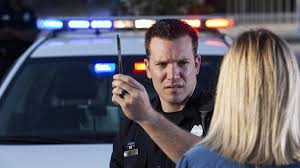
In the realm of DUI arrests, Drug Recognition Experts (DREs) play a crucial role. With substance-impaired driving posing significant risks on roadways, identifying drivers under the influence is paramount for law enforcement and public safety. For Fullerton DUI attorneys and defendants facing drug or alcohol DUI charges, understanding the role of a DRE is essential in navigating the legal system of the North Justice Center. This article will explore who DREs are, how they function in DUI cases, and how their findings can impact court proceedings.
Understanding the Role of a Drug Recognition Expert
A Drug Recognition Expert is a law enforcement officer trained to identify impairment in drivers under the influence of drugs, which may not be as evident as alcohol impairment. While standard field sobriety tests (FSTs) can identify intoxication due to alcohol, these assessments may fall short when drugs are involved. This is where the expertise of a DRE becomes instrumental.
Their specialized training includes a 12-step evaluation protocol, designed to detect and document impairment, establish probable cause for a DUI arrest, and, if applicable, determine which category of drugs might be influencing the driver. These categories include central nervous system depressants, stimulants, hallucinogens, narcotics, cannabis, inhalants, and dissociative anesthetics.
The 12-Step DRE Protocol
Here’s a brief overview of the structured process a Drug Recognition Expert utilizes:
1. Breath Alcohol Test: If the suspect has a low or zero blood alcohol content (BAC) but appears impaired, DREs are often involved.
2. Interview with the Arresting Officer: DREs gather account details regarding the driving, arrest, and behaviors observed.
3. Preliminary Examination and First Pulse: This step involves ruling out medical conditions. The DRE also measures the suspect’s pulse.
4. Eye Examination: The DRE checks for involuntary eye movements, such as horizontal and vertical gaze nystagmus, which can indicate intoxication.

5. Divided Attention Psychophysical Tests: These include standardized tests like the Walk and Turn, and One Leg Stand.
6. Vital Signs and Second Pulse: Blood pressure, temperature, and a second pulse measurement help further assess physiological signs of impairment.
7. Dark Room Examinations: Pupil size is checked under varying lighting conditions to observe any abnormalities.
8. Examination for Muscle Tone: Different drugs can cause muscle rigidity or flaccidity.
9. Injection Sites Examination: The DRE looks for signs of intravenous drug use, such as track marks.
10. Subject Statements and Other Observations: An assessment of the suspect’s overall demeanor and any admissions of drug use.
11. Analysis and Opinions of the Evaluator: The DRE presents their opinion on the category of drug causing impairment.
12. Toxicological Examination: Urine or blood tests conducted to confirm the DRE’s observations.

The Impact of DRE Testimony in Court
The testimony of a Drug Recognition Expert can significantly impact the outcome of a DUI case. In court, DREs explain their observations, the 12-step process, and present their expert opinion regarding the suspect’s impairment. Often, DRE testimony is pivotal in cases involving a drug DUI where conventional breathalyzer results are inconclusive or negligible.
However, the admissibility of DRE evidence can vary by jurisdiction. Some courts hold DRE evaluation results in high regard, treating them as robust evidence, while others may question their reliability and scientific basis. An experienced Fullerton DUI attorney can challenge the credibility and findings of a DRE, offering counterarguments or presenting evidence that may undermine their testimony.
Potential Defenses Against DRE Testimony
Facing a DUI charge can be overwhelming, particularly when a DRE’s assessments are involved. However, there are viable defenses that a seasoned Fullerton DUI attorney can employ to contest DRE findings:
1. Training and Certification Scrutiny: The defense might question the DRE’s credentials, ensuring they have met all necessary training and certification requirements.
2. Protocol Adherence: It is crucial to confirm that the DRE strictly followed the 12-step protocol. Any deviation will be seized upon by a skilled Orange County DUI attorney and could weaken the reliability of their findings.
3. Medical Explanations: Certain medical conditions or legal medications can mimic signs of impairment. Defendants can argue these factors instead contributed to the perceived impairment.
4. Scientific Validity of Observations: Your Orange County DUI lawyer might challenge the scientific underpinnings of DRE observations, questioning their method’s reliability or the lack of empirical evidence supporting certain claims.
5. Cross-examination: Effective cross-examination by your Fullerton DUI lawyer can reveal inconsistencies or uncertainties in the DRE’s testimony, potentially sowing doubt about their conclusions.
The Importance of a Skilled Fullerton DUI Attorney

Navigating the complexities of a DUI arrest involving a Drug Recognition Expert requires adept legal guidance. An experienced Fullerton DUI attorney is well-versed in handling such cases and can provide valuable assistance in crafting a strong defense strategy. They can thoroughly investigate the DRE’s background, scrutinize the evaluation process, challenge evidence, and negotiate as necessary.
Furthermore, a Fullerton DUI lawyer familiar with local laws and statutes can assess the admissibility of DRE evidence. They can also pursue motions to exclude improper evidence or call upon expert witnesses to provide alternate interpretations of the data presented by the DRE.
Understanding the Broader Context
While the role of a Drug Recognition Expert is significant, defendants must understand that it is but one component of a broader legal process. A successful defense requires comprehensive strategy development, one that combines expert testimony, factual evidence, and thorough litigation skills.
For those facing DUI charges, preparing for each procedural aspect—from field sobriety tests to dealing with expert testimony in court—is vital. Securing representation from an attorney who is knowledgeable about both traditional and drug DUIs can make a substantial difference in the legal battle.
In conclusion, a Drug Recognition Expert can notably influence the trajectory of a DUI case. Their specialized evaluations and testimonies are designed to bolster the prosecution’s arguments. However, with the help of a skilled Orange County DUI lawyer, defendants can counter these challenges and strive for the most favorable outcome in their DUI cases.
